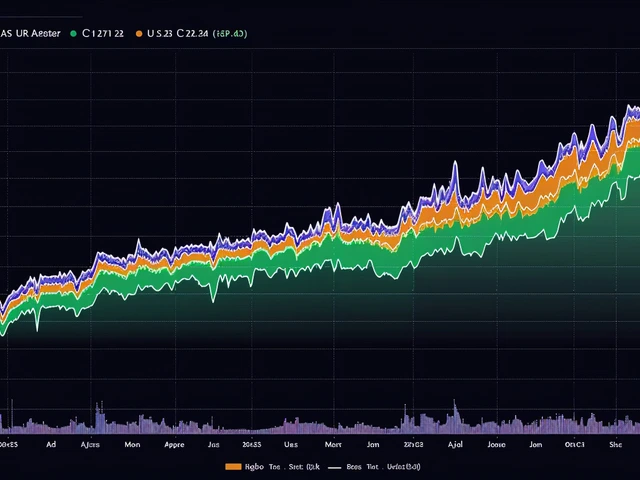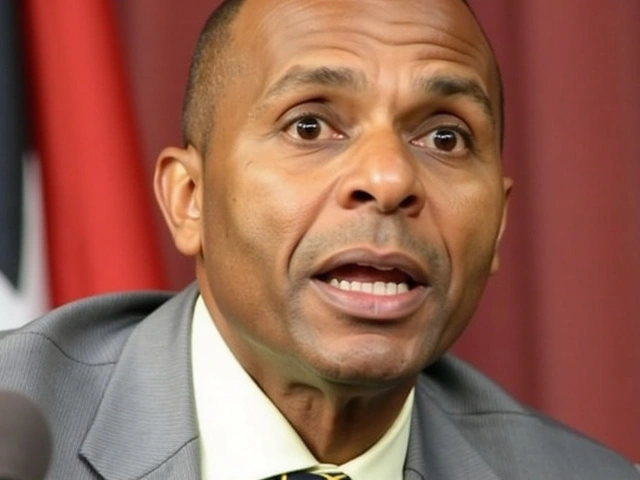You Season 5 Finale Explores Joe Goldberg’s Fall and Society’s Role in Enabling Evil

Joe Goldberg Comes Undone in the Chilling End of You Season 5
For five wild seasons, Joe Goldberg has charmed his way through relationships, hid bodies, and convinced himself—and us—that he always had the purest intentions. Now, the game is finally up. The final moments of You Season 5 throw all the old tricks out the window, revealing Joe at his most desperate, delusional, and dangerous.
This season, the line between hunter and hunted blurs as Bronte, a cunning new presence, flips the script on Joe. After a string of murders and manipulation, Joe tries to claim a fresh start. But deep down, his violent obsession always lurked, barely contained. Bronte’s arrival is no coincidence; she’s watched him, studied the pattern he never could break.
Their showdown is brutal. In a nerve-racking confrontation, Bronte outmaneuvers Joe and forces him to admit on camera what he’s always buried—the truth behind Beck’s tragic death. This taped confession isn’t just a plot twist. It’s a moment years in the making, a hard reset after Joe spent seasons rewriting everyone’s story but his own.
Police finally catch up with the real Joe, not the boyfriend-next-door or reformed bookstore owner. Joe faces trial, the kind he always thought he’d outsmart. He’s found guilty of murdering Beck, Love Quinn, Benji Ashby, and Peach Salinger—each name a reminder of someone whose life Joe treated like a page in his own twisted narrative. The judge isn’t swayed by Joe’s usual charm or crocodile tears; the verdict lands heavy: life in prison, no chance of parole.
You Season 5 doesn’t let up with the emotional punches. Locked up, Joe reads Norman Mailer’s The Executioner’s Song, a bleak nod to stories about criminals and the people who watch them. The show goes meta as Joe breaks the fourth wall for his last monologue. He stares down the audience and shrugs, "Maybe the problem isn’t me. Maybe it’s you." It’s less an excuse and more a dare—how many red flags does it take before we stop rooting for the monster?
Survivors Take Back Their Stories While the Series Turns the Mirror
Bronte doesn’t just survive her face-off with Joe; she turns the tide. Even after being shot, she refuses to be a victim. Once Joe is behind bars, Bronte restores Beck’s original manuscript—undoing all of Joe’s attempts to erase her voice and rewrite history. It’s a rare moment in the show where control shifts back to those who suffered.
Other threads get long-overdue closure. Kate, who has been pulled into Joe’s toxic world, finally cuts ties for good. Elton, another character scarred by past events, makes peace with his brother, hinting that healing is possible, but only once the cycle of violence is broken.
The final season doesn’t just settle scores. It lands a punch at something bigger: toxic masculinity. The writers refuse to make Joe’s downfall the end of the story. Instead, they force us to stare at how systems let someone like Joe slip through so many cracks—from law enforcement to friends who looked the other way. The haunting question isn’t why Joe did what he did, but why nobody stopped him sooner. This isn’t a simple wrap-up of a serial killer’s spree; it’s a challenge to the audience to consider their own complicity.
As the credits roll, You Season 5 makes it clear: changing one person isn’t enough. If you want to stop the Joes of the world, it takes more than a prison sentence. It takes everyone paying attention to what’s right in front of them.






Ghanshyam Shinde
April 26, 2025 AT 17:41So the show finally decides to punish Joe? That's about as surprising as a sunrise.
Charlotte Louise Brazier
May 2, 2025 AT 12:34Look, the series isn’t just a guilty‑pleasure thrill ride; it’s a blunt reminder that our own complacency fuels monsters. While Joe sculpts his narratives, the institutions that should have halted him are conveniently blind. This isn’t an excuse, it’s a call to action for every viewer to question the systems that enable toxic behavior. We need to stop lion‑hearteding the predator and start protecting the prey.
SAI JENA
May 7, 2025 AT 03:41From a narrative perspective, the finale employs a deterministic framework wherein the protagonist’s agency is irrevocably curtailed by judicial mechanisms. This resolution aligns with classical tragic structure, underscoring the inevitability of moral retribution. Moreover, the incorporation of meta‑textual elements, such as Joe’s reference to Mailer, enriches the intertextual discourse. It is an exemplar of how contemporary television can blend entertainment with philosophical inquiry.
Donny Evason
May 10, 2025 AT 15:01It’s fascinating how the series mirrors the cultural malaise of glorifying the anti‑hero, especially when societies romanticize the lone wolf. By confronting Joe with a formidable counterpart, the narrative dismantles the myth of solitary genius. The showdown isn’t merely physical; it’s a clash of ideological worldviews that reflects our collective failure to hold individuals accountable. This bold move challenges us to re‑evaluate the stories we celebrate.
Hariom Kumar
May 12, 2025 AT 22:34Hope the next season writes better characters 😊
Phillip Cullinane
May 14, 2025 AT 16:14Season five delivers a meticulous deconstruction of Joe’s psychopathy, exposing his underlying attachment disorders.
Each episode layers narrative cues that hint at his inevitable collapse.
The writers employ a deterministic plot trajectory that mirrors real‑world forensic processes.
By integrating courtroom dramatics, the series underscores the inescapable reach of legal accountability.
The inclusion of Norman Mailer’s *The Executioner’s Song* serves as an intertextual anchor, linking literary critique to televised storytelling.
Critics have noted that this meta‑reference elevates the show beyond mere horror into a discourse on media influence.
From a psychological standpoint, Joe’s confession mirrors the concept of “self‑presentation” in forensic psychology.
The audience is forced to confront their own voyeuristic tendencies as they have been complicit in his narrative.
Furthermore, Bronte’s calculated counter‑maneuvers illustrate the concept of “strategic resistance” in trauma theory.
Her survival narrative challenges the trope of victimhood, repositioning agency within the survivor’s arc.
The series also tackles systemic failures, highlighting how law enforcement’s oversight can perpetuate cycles of violence.
Social media amplification of charismatic profiles is subtly critiqued through Joe’s online manipulations.
The writers balance shock value with poignant moments of redemption, creating a complex emotional tapestry.
Overall, the finale’s pacing provides a cathartic release while maintaining narrative cohesion.
In sum, the season stands as a compelling case study in how contemporary television can merge entertainment with sociocultural commentary.
Janie Siernos
May 16, 2025 AT 01:34We cannot excuse the narrative simply because it is entertaining; ethical responsibility transcends fictional boundaries.
joy mukherjee
May 17, 2025 AT 05:21The way Bronte reclaims Beck’s manuscript feels like a powerful act of narrative restitution, a reminder that survivors deserve agency. It also highlights how storytelling can be weaponized and then reclaimed, which is both heartbreaking and hopeful 😊
Rob Chapman
May 18, 2025 AT 03:01Joe’s fall shows that even the most charming villains eventually hit rock bottom it's a reminder to stay vigilant
Delaney Lynch
May 18, 2025 AT 22:28Indeed, the series not only wraps up plot threads, but also invites viewers, critics, and scholars alike, to contemplate the systemic failures, the cultural glorification of danger, and the profound need for societal introspection, all while delivering edge‑of‑your‑seat drama.
Nicholas Mangraviti
May 19, 2025 AT 15:08Narrative closure matters.
Jared Greenwood
May 20, 2025 AT 05:01Let’s be clear: glorifying a domestic predator under the guise of “character depth” is a betrayal of national values. When we watch Joe’s manipulations go unchecked, we’re complicit in eroding the moral fabric that binds our community. This storyline should serve as a rallying cry for stricter oversight, cultural accountability, and a reaffirmation of the principles that make our society resilient.
Sally Sparrow
May 20, 2025 AT 16:08The analysis feels shallow; the show pretends to critique toxic masculinity while still feeding the very appetite it claims to condemn. It’s a classic case of performative progressiveness that never truly disrupts the status quo.
Eric Yee
May 21, 2025 AT 00:28Just watching the final episode felt like a slow burn of reckoning the layers of deception and redemption in a world that often turns a blind eye